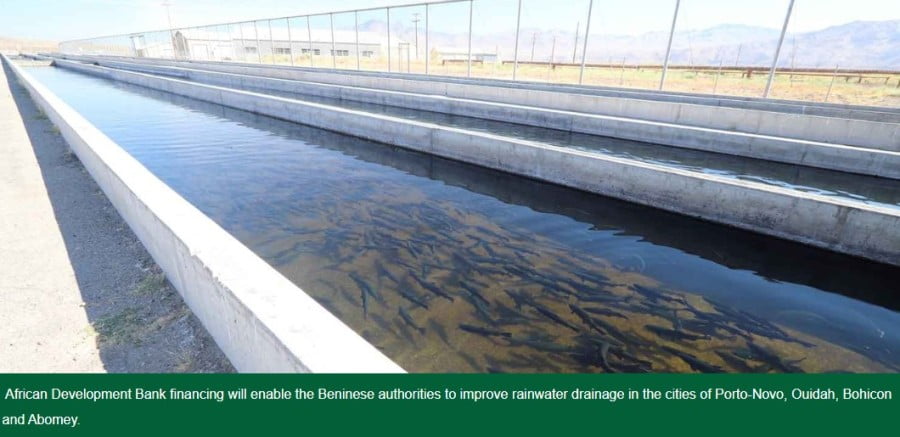Release
The African Development Bank (AfDB) has awarded Benin a total loan of €164.25 to improve urban service delivery and build resilience to flooding caused by climate change.
The loan for the implementation of the Secondary Cities Stormwater Drainage Project (PAPVS), was approved by the Bank’s Board of Directors on Wednesday, 5 July 2023, in Abidjan. It comprises €118.75 million from the African Development Bank and €45.5 million from the Africa Growing Together Fund, co-financed with China. Benin’s government will contribute €13.79 million.
In the last few decades, Benin has experienced intense climatic variability, characterized by the recurrence of extreme weather events and the disruption of seasonal rainfall patterns. The number of communities at high risk of flooding has risen from 22 in 2010 to 35 in 2022, attesting to the scale of the phenomenon.
The project will develop stormwater drainage infrastructure in four cities; Porto-Novo, Ouidah, Bohicon and Abomey, with a combined population of around one million. When completed, it will improve the living conditions of the people in the target cities and strengthen their resilience to flooding.
It has three components: the first involves stormwater drainage infrastructure and related works, such as the construction of 42.7 km of primary and secondary collectors (large culverts) and 62.3 km of culverts; the asphalting of 18.7 km; and the paving of 16.1 km of roads. It also covers the construction of 72 classrooms, 18 blocks of toilets with 36 hand-washing kits, housing for health workers, four drying sheds for fish smoking, two boreholes equipped with hand pumps, a public square and a public garden. Some 5,521 seedlings will be planted, in addition to the reforestation of 17.22 hectares. The various communities will be sensitized to prevent gender-based violence, including sexual harassment.
The second component involves setting up a waste management and facility maintenance mechanism (training, equipment, elimination of existing dumps) that includes a gender dimension, and strengthening flood-risk warning and management system. A water retention basin and a market gardening area will be created.
The third component covers project management, monitoring and evaluation.
The project will significantly improve hygiene, help reduce water-borne diseases, and increase the enrolment and retention of girls in school. It will also foster employment opportunities.
The project contributes to two priority areas of the Bank’s Country Strategy Paper for Benin: agricultural transformation and industrial development and strengthening infrastructure to support economic production and competitiveness.
Source: African Development Bank Group

